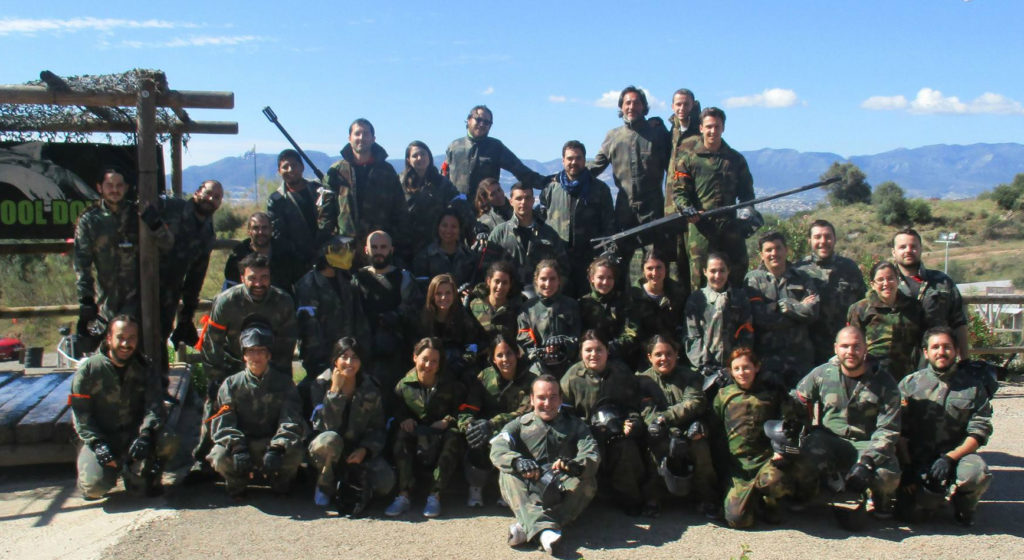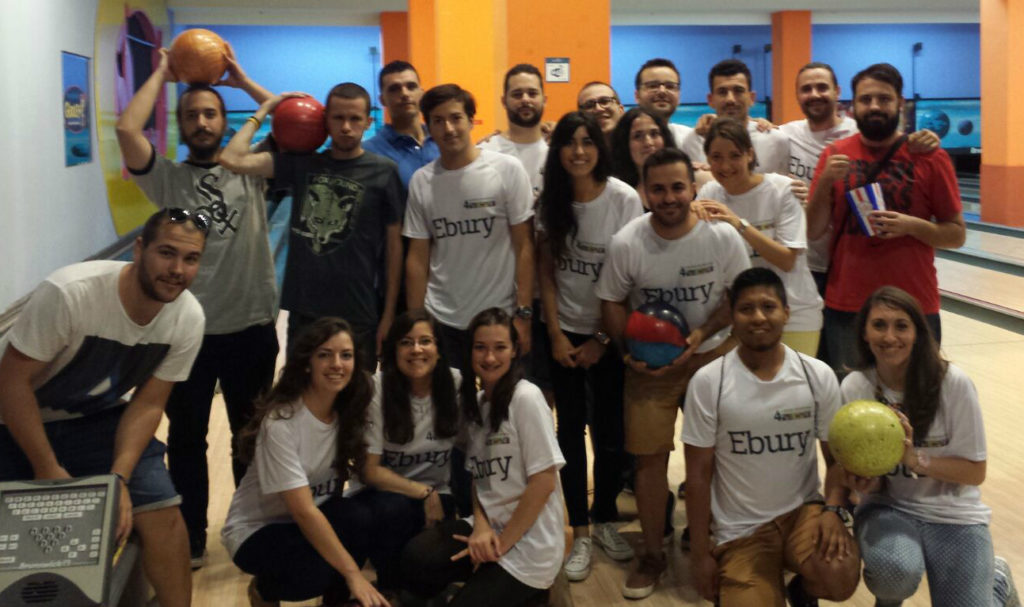
From the beginning of the times humanity has been able to do awesome things that made a big difference to the world: the discovery of fire, language, wheel, electricity, penicillin examples of the most important ones. These discoveries were made possible by people with a strong motivation.
Motivation is an impulse that causes a person to act or make decisions. It is an internal process that enables a person to move towards a goal. It can only be evaluated by behaviour observation. Nevertheless, what does motivate people to create these ‘awesome’ things? And, if only one such person is able to motivate others, what would we be able to achieve with a motivated, self-driven and happy team?
“Every great product ever created that made a huge difference in the market was created by a highly motivated individual or team. As a corollary, never in the history, at no place on the Earth, an unmotivated individual or workforce gave birth to a great product”
— Ángel Medinilla
Throughout the years, researchers have proposed theories to explain human motivation. Nevertheless, there is no clear answer to what motivation is. Perhaps it is because there is no simple answer. Or motivation has changed over time. Our first ancestors only wanted to fulfil their basic needs. Once, these needs were satisfied, the first inventors arose, motivated by scientific and technological development. Currently, we live in a complex society, where it is very difficult, practically impossible, to enumerate a list of people’s motivations that would be valid for everyone. In my life, I haven’t met two individuals with the same motivations.

However, despite the difficulties, we know, the most important assets in a company are our people. They have the power to turn an idea into reality. They are the heart, brain and hands of a company at the same time. And only they can make great things happen. For this reason it’s so important to spend time with them and to keep their motivation high.
Getting people and teams motivated is not easy, as there will always be difficulties and motivation will go down. Creating an encouraging context to increase motivation is one of the most important goals in my daily work. We don’t have the key answer to win this struggle, but I would like to share with you some examples, where we reached interesting results.
Building a culture
It’s important to create a culture that will reflect upon employees as culture is the way in which we do everything. All the people in the company should work towards defining it, along with common values and goals. However, it is easier said than done as changing culture requires a transformation in the current company status quo. It is a very intensive process that can require significant time to complete. Transparency, constant communication, clear purpose, long term vision, teamwork, empowerment, not fear to fail and quality can all help in achieving this objective.
To start with this task I recommend you to establish a specific and clear purpose of your company along with strong values. Build your culture around these values and make all your colleagues included. It’s very important they understand and behave in line with these values. For example you can start with a small group of people, helping them to establish the common values and show the rest how it works and impacts results of their work.
Know them
If you want to motivate your people, you have to know them and not only from a professional point of view. It’s not too difficult, you only need to spend some time together and most importantly learn how to listen to them.
We continuously have one to one meetings with our colleagues. We prefer to do this in an informal way, but you can choose the format that suits you. The main objective of meetings is to create close bounds, discover worries and motivations, brainstorm new ideas how to improve, or to share some time with whom you spend the least of the day. This meetings are very useful. They help us to focus our efforts on the really important things, hence, keeping the motivation up. It’s of the utmost importance to try to align their personal objectives and motivations (intrinsic motivation) with their work objectives. If you achieve that, people will be motivated and happy without any extra effort.
Empower the whole team
We cannot forget that a work environment is a network of relationships between people with different thoughts, knowledge and points of view. In this network is included everybody in the company – from the biggest boss to the most recent colleague and all of them are equally important. Likewise, stronger relationships will improve the complete company network.

Following this, we created a specific team to empower the network. This team is focused on creating corporate activities to improve the relationship between all members of the company. Once per month we have a team activity outside of the office, in which all the colleagues can spend some time together. So far we have done sports such as: paintball, trekking, kayaking, bowling and running among others. During the activities we usually practise teamwork, we network with each other, therefore, strengthen the team bounds.
Furthermore, every week we have ad-hoc activities and challenges such as cakes baking, jokes and best costume competition, office parties and table games among others. All the colleagues in the company are invited to join the activities.

To work with the whole network is very important, however, the results might take some time to appear. Another time, we might want to focus on a set of people with a common objective. In this case, we split the network in sub-networks. Each sub-network can form a team and we can work with these at the same time as we work with the complete network, whilst focusing our objectives on improving specific areas. As well as we work with the complete network, we can split it into separate teams, and work with all of them individually. Retrospectives, 360 degree feedback, celebrate successes, clear long term vision and transparency can help you to work with your teams in this way.
Create the context
We are not machines with a unique objective that is pursued through a clear path. Our work is dynamic and often requires great amounts of imagination and dedication. We need time to think, test, fail and learn. It’s our work to give our teams all the resources and the time they need to do this. A lack of the this can decrease team motivation and increase absenteeism.
I think one of the best ways to learn and grow is by sharing our knowledge and learning from the rest of the colleagues. To learn one from the other is not easy, but it helps to create a good culture and empower the network. Regularly, we have some events, in which we explore and discuss about interesting topics such as training sessions, QA, developer and devOps meetings, kaizen events among others. All of these meetings are created for and managed by the network.
We live in a constantly changing environment. Technology, methodologies and workflows are all continuously improving and it’s important to be in touch with the most recent changes. You can not only focus on daily tasks, but also look for analysing these topics. For this reason, we have included some actions to our workflows. We buy interesting books required by colleagues, attend conferences, workshops or courses that can bring us new ideas, whilst spending time during the development to study new technologies (Gold card).
In this context it is essential to lose the fear to fail. All of us have made a lot mistakes and it’s the only way how to learn: “Fail quick and learn how to do it in a better way next time”. We analyse our failures and weaknesses (retrospectives) with the only objective – to learn how to avoid these in the future. Who fails is not important. Grow as a team is the ultimate goal.
